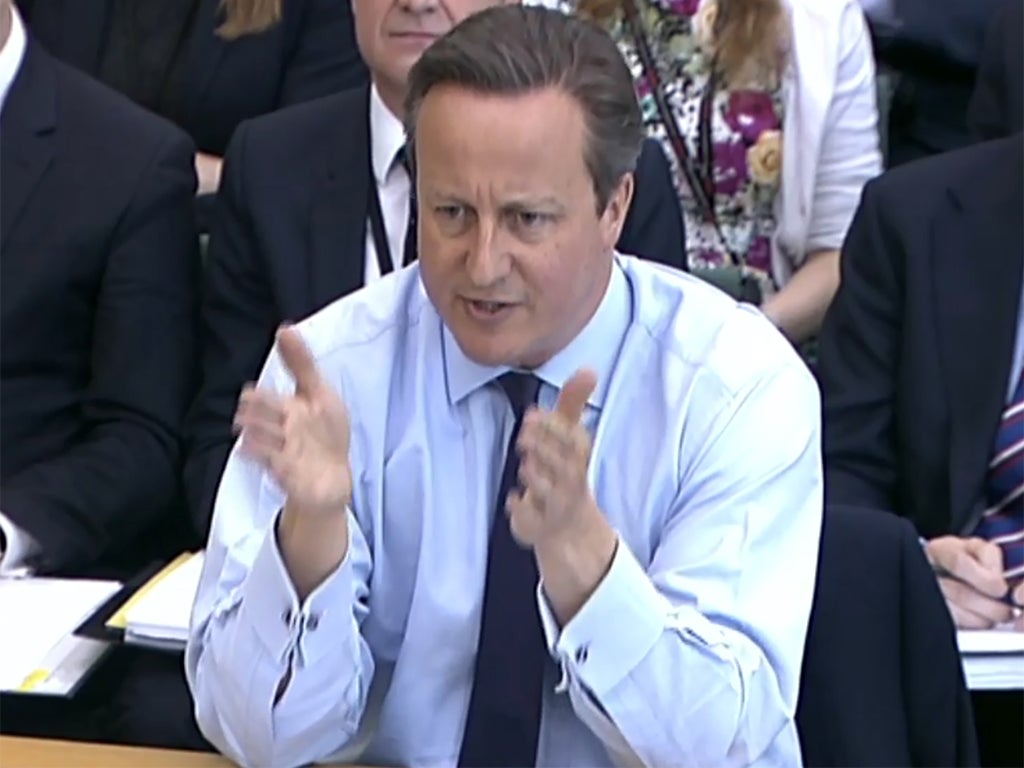EU referendum: Britons should not let concerns about migration from Turkey affect their vote, says David Cameron
The Prime Minister said that he did not believe Turkey would join the EU ‘for decades’

Your support helps us to tell the story
From reproductive rights to climate change to Big Tech, The Independent is on the ground when the story is developing. Whether it's investigating the financials of Elon Musk's pro-Trump PAC or producing our latest documentary, 'The A Word', which shines a light on the American women fighting for reproductive rights, we know how important it is to parse out the facts from the messaging.
At such a critical moment in US history, we need reporters on the ground. Your donation allows us to keep sending journalists to speak to both sides of the story.
The Independent is trusted by Americans across the entire political spectrum. And unlike many other quality news outlets, we choose not to lock Americans out of our reporting and analysis with paywalls. We believe quality journalism should be available to everyone, paid for by those who can afford it.
Your support makes all the difference.Voters should not let concerns about migration from Turkey affect their vote in the EU referendum, David Cameron has said, claiming that the country’s accession to the European Union is “not remotely on the cards”.
Hitting back at close ally and friend Michael Gove, who claimed in a speech last week that staying in the EU would leave Britain’s doors open to “millions” of migrants from prospective members, the Prime Minister said that he did not believe Turkey would join the EU “for decades”.
Facing questions on the referendum from MPs on the House of Commons Liaison Committee, Mr Cameron also issued a new warning over the consequences of Brexit for the City of London, claiming that the head of the London Stock Exchange had warned him 100,000 jobs could be lost in the banking and financial services sector if Britain left the EU because of changes to passport rules.
If your vote in this referendum is being influenced by considerations about Turkish membership of the EU – don’t think about it
Appearing relaxed as he faced questions from a number of prominent Eurosceptic MPs from his own party, Mr Cameron said that his views on Europe had evolved as Prime Minister, and that he was now more convinced than he had been that the UK’s membership improves security against international crime and terrorism.
He said that there was a “patriotic case” for remaining In, and claimed he did not feel “less British” because of the country’s EU membership.
Challenged by Labour MP Frank Field over the likely impact of Turkish accession to the EU on UK immigration, the Prime Minister said: “I don’t think the accession of Turkey to the EU is remotely on the cards. I don’t think it will happen for decades.
“I think if you look at the facts, the facts are it requires unanimity of all European members, the French for instance have said they would have a referendum on it. I would say very clearly to people: if your vote in this referendum is being influenced by considerations about Turkish membership of the EU – don’t think about it.”
However, he faced new questions over the decision to allow the civil service to support the Government’s public arguments for a Remain vote, as senior Conservative MP Bernard Jenkin claimed that the Government could be breaking the law by allowing pro-Remain information to remain on official websites during the pre-referendum purdah period – during which government organisations are not allowed to make announcements that could be advantageous to either side.
Mr Cameron suggested would be an “extreme” move to have the web pages taken down, but said the Government would seek its own legal advice on the matter.
Join our commenting forum
Join thought-provoking conversations, follow other Independent readers and see their replies
Comments